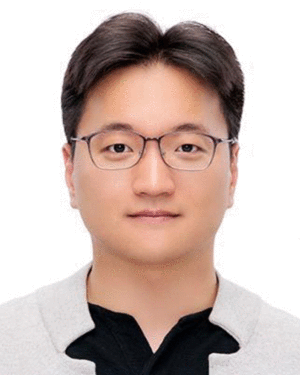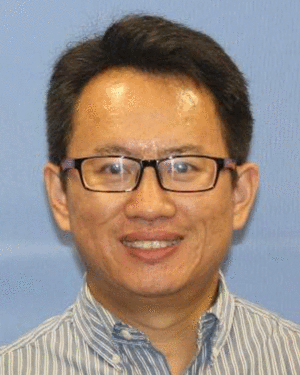Abstract:
While ongoing efforts have continuously emphasized the integration of ChatGPT with science teaching and learning, there are limited empirical studies exploring its actual...Show MoreMetadata
Abstract:
While ongoing efforts have continuously emphasized the integration of ChatGPT with science teaching and learning, there are limited empirical studies exploring its actual utility in the classroom. This study aims to fill this gap by analyzing the lesson plans developed by 29 pre-service elementary teachers and assessing how they integrated ChatGPT into science learning activities. We first examined how ChatGPT was integrated with the subject domains, teaching methods/strategies, and then evaluated the lesson plans using a generative artificial intelligence (AI)-technological pedagogical and content knowledge (TPACK)-based rubric. We further examined pre-service teachers' perceptions and concerns about integrating ChatGPT into science learning. Results show a diverse number of ChatGPT applications in different science domains—e.g., Biology (9/29), Chemistry (7/29), and Earth Science (7/29). A total of 14 types of teaching methods/strategies were identified in the lesson plans. On average, the pre-service teachers' lesson plans scored high on the modified TPACK-based rubric (M = 3.29; SD = 0.91; on a 1–4 scale), indicating a reasonable envisage of integrating ChatGPT into science learning, particularly in “instructional strategies and ChatGPT” (M = 3.48; SD = 0.99). However, they scored relatively lower on exploiting ChatGPT's functions toward its full potential (M = 3.00; SD = 0.93), compared to other aspects. We also identified several inappropriate use cases of ChatGPT in lesson planning (e.g., as a source of hallucinated Internet material and technically unsupported visual guidance). Pre-service teachers anticipated ChatGPT to afford high-quality questioning, self-directed learning, individualized learning support, and formative assessment. Meanwhile, they also expressed concerns about its accuracy and the risks that students may be overly dependent on ChatGPT. They further suggested solutions to systemizing classroom dynamics between teachers and students. The st...
Published in: IEEE Transactions on Learning Technologies ( Volume: 17)

AI4STEM Education Center, University of Georgia, Athens, GA, USA
Gyeong-Geon Lee received the dual B.S. degrees in chemistry education, and computer science and engineering, and the Ph.D. degree in science education from Seoul National University, Seoul, South Korea, in 2016 and 2023, respectively.
He is a Postdoctoral Research Associate with the Department of Mathematics, Science, and Social Studies Education and the AI4STEM Education Center, University of Georgia, Athens, GA, USA. His...Show More
Gyeong-Geon Lee received the dual B.S. degrees in chemistry education, and computer science and engineering, and the Ph.D. degree in science education from Seoul National University, Seoul, South Korea, in 2016 and 2023, respectively.
He is a Postdoctoral Research Associate with the Department of Mathematics, Science, and Social Studies Education and the AI4STEM Education Center, University of Georgia, Athens, GA, USA. His...View more

Mary Frances Early College of Education, University of Georgia, Athens, GA, USA
AI4STEM Education Center, University of Georgia, Athens, GA, USA
Xiaoming Zhai received the Ph.D. degree in curriculum and instruction (physics) from Bejing Normal University, Beijing, China, in 2017.
He is currently an Associate Professor of science education and artificial intelligence and the Director of the AI4STEM Education Center, University of Georgia, Athens, GA, USA. His research interests include developing AI-based innovative assessments, aiming to leverage cutting-edge techn...Show More
Xiaoming Zhai received the Ph.D. degree in curriculum and instruction (physics) from Bejing Normal University, Beijing, China, in 2017.
He is currently an Associate Professor of science education and artificial intelligence and the Director of the AI4STEM Education Center, University of Georgia, Athens, GA, USA. His research interests include developing AI-based innovative assessments, aiming to leverage cutting-edge techn...View more

AI4STEM Education Center, University of Georgia, Athens, GA, USA
Gyeong-Geon Lee received the dual B.S. degrees in chemistry education, and computer science and engineering, and the Ph.D. degree in science education from Seoul National University, Seoul, South Korea, in 2016 and 2023, respectively.
He is a Postdoctoral Research Associate with the Department of Mathematics, Science, and Social Studies Education and the AI4STEM Education Center, University of Georgia, Athens, GA, USA. His research interests include various AIEd initiatives such as automatic scoring using LLM/VLM, multimodal learning empowered by AGI, and transformative teaching and learning based on Human–AI collaboration.
Gyeong-Geon Lee received the dual B.S. degrees in chemistry education, and computer science and engineering, and the Ph.D. degree in science education from Seoul National University, Seoul, South Korea, in 2016 and 2023, respectively.
He is a Postdoctoral Research Associate with the Department of Mathematics, Science, and Social Studies Education and the AI4STEM Education Center, University of Georgia, Athens, GA, USA. His research interests include various AIEd initiatives such as automatic scoring using LLM/VLM, multimodal learning empowered by AGI, and transformative teaching and learning based on Human–AI collaboration.View more

Mary Frances Early College of Education, University of Georgia, Athens, GA, USA
AI4STEM Education Center, University of Georgia, Athens, GA, USA
Xiaoming Zhai received the Ph.D. degree in curriculum and instruction (physics) from Bejing Normal University, Beijing, China, in 2017.
He is currently an Associate Professor of science education and artificial intelligence and the Director of the AI4STEM Education Center, University of Georgia, Athens, GA, USA. His research interests include developing AI-based innovative assessments, aiming to leverage cutting-edge technology, AI/machine learning, and facilitate high-quality assessment practices in science.
Xiaoming Zhai received the Ph.D. degree in curriculum and instruction (physics) from Bejing Normal University, Beijing, China, in 2017.
He is currently an Associate Professor of science education and artificial intelligence and the Director of the AI4STEM Education Center, University of Georgia, Athens, GA, USA. His research interests include developing AI-based innovative assessments, aiming to leverage cutting-edge technology, AI/machine learning, and facilitate high-quality assessment practices in science.View more


